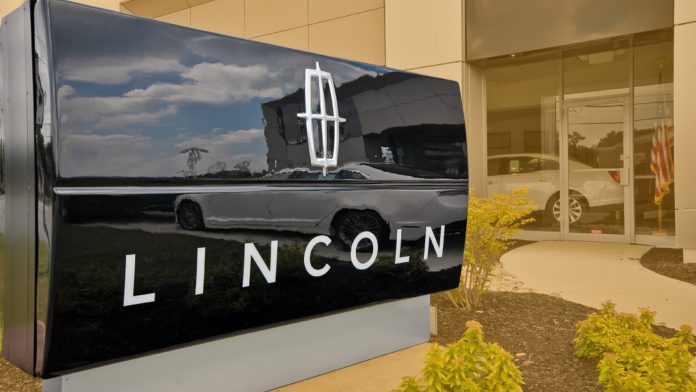Increased Opposition: Car Dealers Push Back Against EV Requirements

Table of Contents
Financial Concerns Fuel Dealer Resistance
Dealerships are facing substantial financial challenges as they adapt to the changing landscape of the automotive industry. The high upfront investment costs associated with EV infrastructure represent a major hurdle. This includes the considerable expense of installing charging stations, acquiring specialized tools for EV maintenance and repair, and investing in comprehensive employee training programs to handle the unique aspects of electric vehicle technology.
Furthermore, many dealers report lower profit margins on EV sales compared to traditional gasoline-powered vehicles. This is partly due to the higher initial purchase price of EVs and the competitive pricing strategies employed by manufacturers. The uncertainty surrounding future revenue streams from EV maintenance and repair also contributes to dealer apprehension. Unlike gasoline vehicles, EVs have fewer moving parts, potentially resulting in reduced service needs and lower parts sales.
- Expensive charging station installations: The cost of installing and maintaining Level 2 and DC fast chargers can be prohibitive for many dealerships, especially those with limited space or older infrastructure.
- Need for specialized EV mechanic training programs: Training technicians to diagnose and repair EV components requires significant investment in time and resources.
- Reduced parts sales due to EV simpler mechanics: The simpler mechanics of EVs mean fewer parts are needed for repairs compared to internal combustion engine (ICE) vehicles, impacting parts sales revenue.
- Potential for lower service revenue due to lower maintenance needs of EVs: The reduced maintenance requirements of EVs, such as fewer oil changes and tune-ups, can translate to lower service revenue for dealerships.
Challenges in EV Sales and Consumer Education
Another significant challenge lies in the sales process itself. Many dealerships lack the necessary training and expertise to effectively sell and promote EVs to consumers. Sales staff often lack sufficient knowledge about EV features, benefits, charging infrastructure, and government incentives, hindering their ability to address consumer concerns and close sales.
Consumer apprehension also plays a crucial role. Range anxiety, concerns about charging infrastructure availability, and the perceived higher purchase price of EVs remain significant barriers to adoption. Misconceptions about EV technology and its benefits further complicate the sales process.
- Insufficient sales staff training on EV features and benefits: Dealerships need comprehensive training programs to equip their sales teams with the knowledge to effectively communicate the value proposition of EVs.
- Customer concerns about charging infrastructure and travel range: Addressing consumer anxieties about range and charging accessibility requires improved communication and education about existing and planned charging networks.
- Misconceptions about EV purchase prices and government incentives: Clarifying the true cost of ownership, including government incentives and potential energy savings, is vital for dispelling consumer misconceptions.
- Need for improved consumer education campaigns about EVs: Government and industry collaboration on comprehensive consumer education campaigns is crucial to increase EV awareness and address common concerns.
Logistical Hurdles and Inventory Management
The transition to EVs also presents significant logistical challenges for dealerships. Managing EV inventory is proving difficult due to fluctuating model availability and unpredictable customer demand. Dealers must find a delicate balance between maintaining sufficient EV inventory to meet demand and managing their existing inventory of gasoline vehicles. Showroom space limitations further complicate matters, requiring dealerships to adapt their layouts to accommodate EV charging stations.
- Supply chain disruptions affecting EV availability: Global supply chain issues continue to impact the availability of EV models, making accurate inventory forecasting challenging.
- Balancing EV and ICE vehicle inventory levels: Dealerships face the challenge of balancing their inventory of EVs with the continued demand for internal combustion engine (ICE) vehicles.
- Adapting dealership floor plans for charging station integration: Integrating charging stations requires careful planning and modification of existing dealership infrastructure.
- Managing different EV charging infrastructure requirements: Dealerships must navigate the complexities of different charging standards and ensure compatibility with various EV models.
Lobbying Efforts and Political Pressure
Facing these combined challenges, car dealer associations are actively lobbying against stringent EV mandates, advocating for a more gradual transition. This lobbying reflects the significant political influence of the automotive industry and the concerns about potential job losses in the traditional automotive sector if the shift to EVs happens too quickly. These concerns, while valid, underscore the need for a collaborative approach to manage the transition effectively.
- Increased lobbying activity from dealer associations: Powerful lobbying groups are actively working to influence policy decisions related to EV adoption timelines.
- Political campaigns focusing on the challenges of rapid EV adoption: Political discourse frequently highlights the economic and logistical challenges associated with a rapid transition to electric vehicles.
- Economic arguments against hasty implementation of EV mandates: Opponents of rapid EV adoption cite potential negative economic consequences, including job losses in the traditional automotive industry.
Conclusion
The resistance from car dealers to EV requirements highlights the inherent complexities of a rapid transition to electric vehicles. Financial concerns, logistical hurdles, and the need for improved consumer education are all significant obstacles that must be addressed. A collaborative approach involving governments, manufacturers, and dealerships is crucial for successful EV adoption. Ignoring the concerns of car dealers will only intensify resistance and hinder progress toward a cleaner transportation future. Understanding the challenges faced by car dealers in adapting to EV requirements is essential for finding effective solutions and fostering a smoother transition to electric vehicle mandates. We need a collaborative effort to overcome the obstacles surrounding EV adoption.

Featured Posts
-
 Liverpools Win A Lucky Break Slot And Enriques Views
May 22, 2025
Liverpools Win A Lucky Break Slot And Enriques Views
May 22, 2025 -
 Betalingen Met Tikkie Eenvoudig En Veilig Geld Versturen In Nederland
May 22, 2025
Betalingen Met Tikkie Eenvoudig En Veilig Geld Versturen In Nederland
May 22, 2025 -
 Yevrokomisar Pro Chlenstvo Ukrayini V Nato Golovni Vikliki Ta Zagrozi
May 22, 2025
Yevrokomisar Pro Chlenstvo Ukrayini V Nato Golovni Vikliki Ta Zagrozi
May 22, 2025 -
 Javier Baez Enfocandose En La Salud Para Maximizar La Productividad
May 22, 2025
Javier Baez Enfocandose En La Salud Para Maximizar La Productividad
May 22, 2025 -
 La Croissance Des Tours A Nantes Et Ses Repercussions Sur La Profession De Cordistes
May 22, 2025
La Croissance Des Tours A Nantes Et Ses Repercussions Sur La Profession De Cordistes
May 22, 2025
